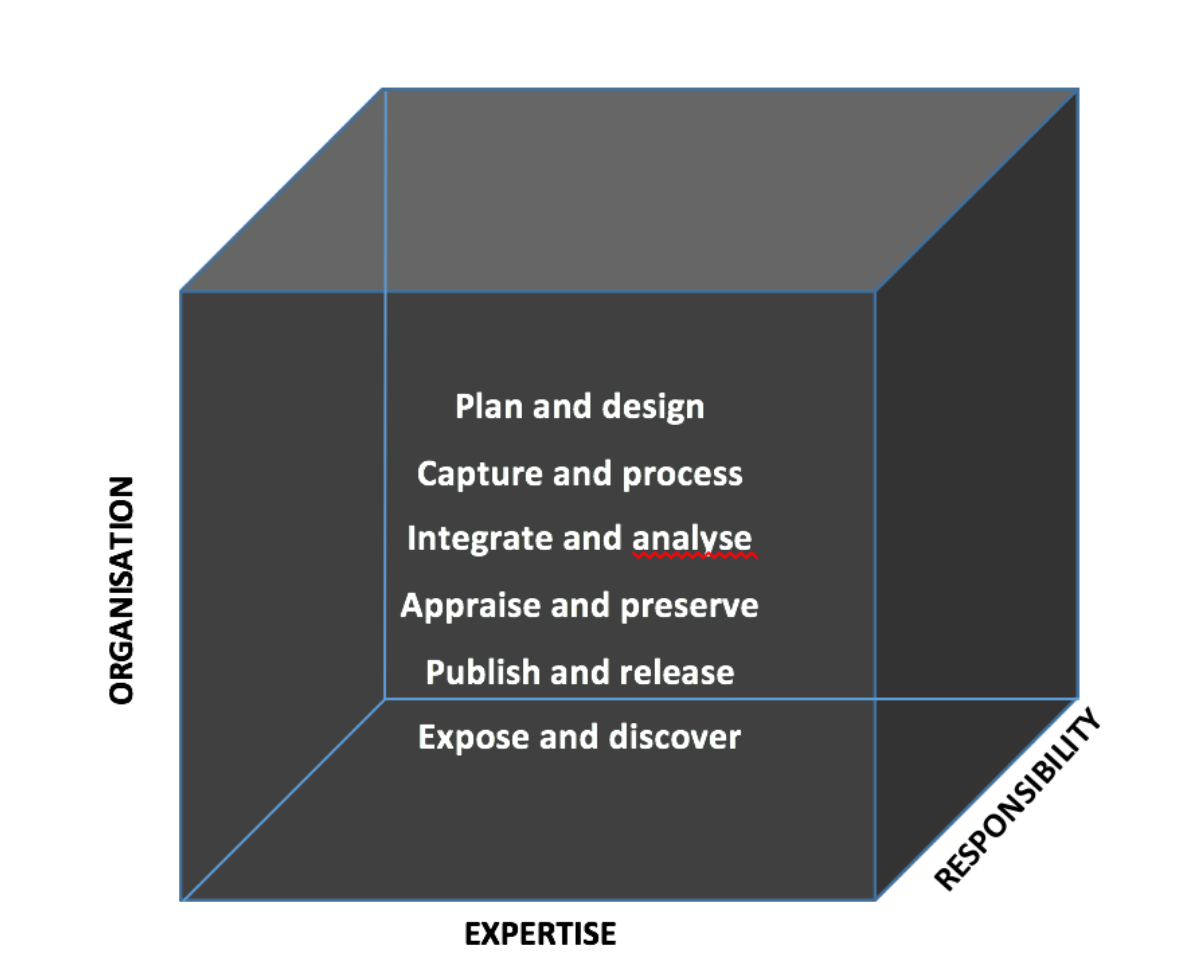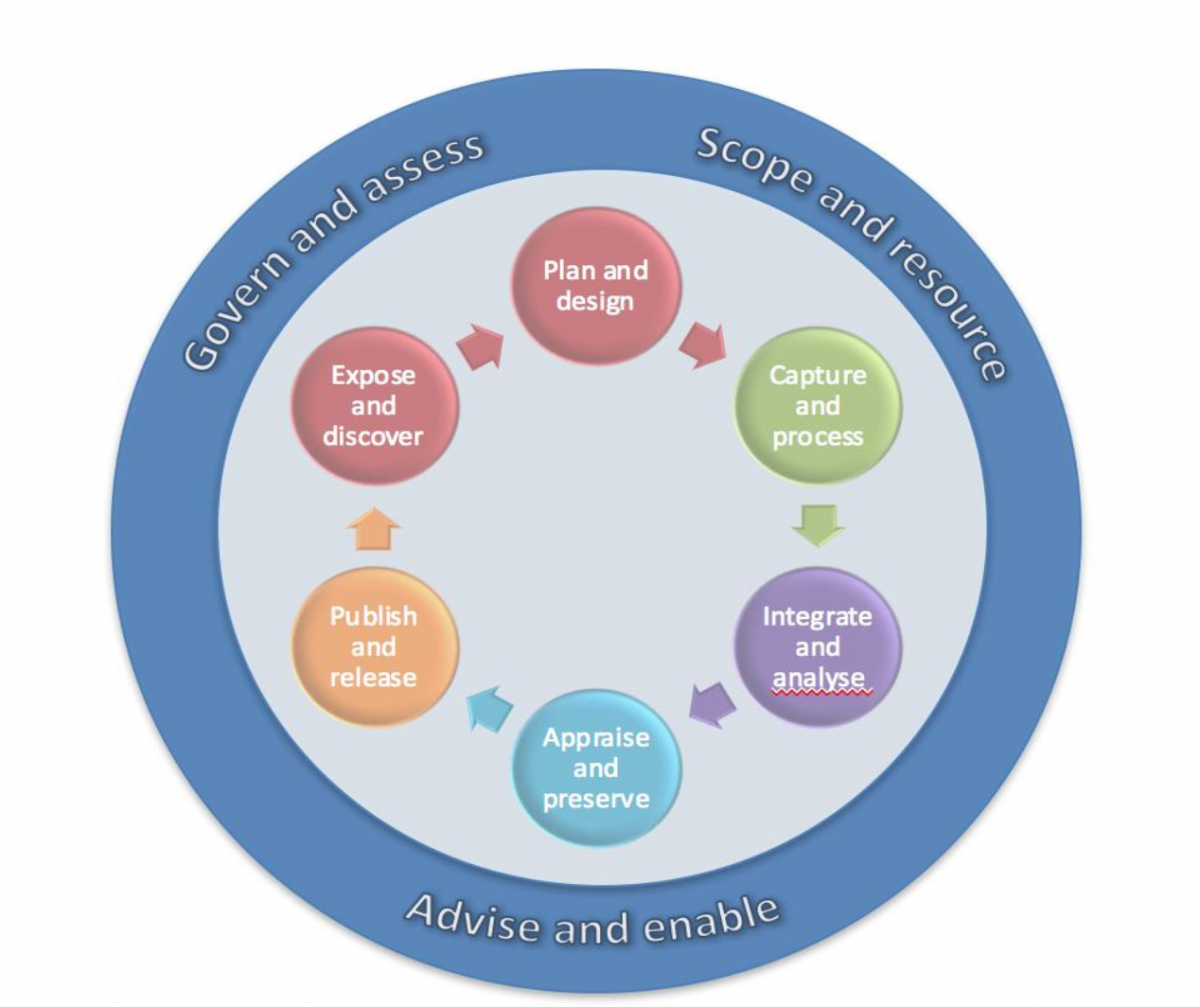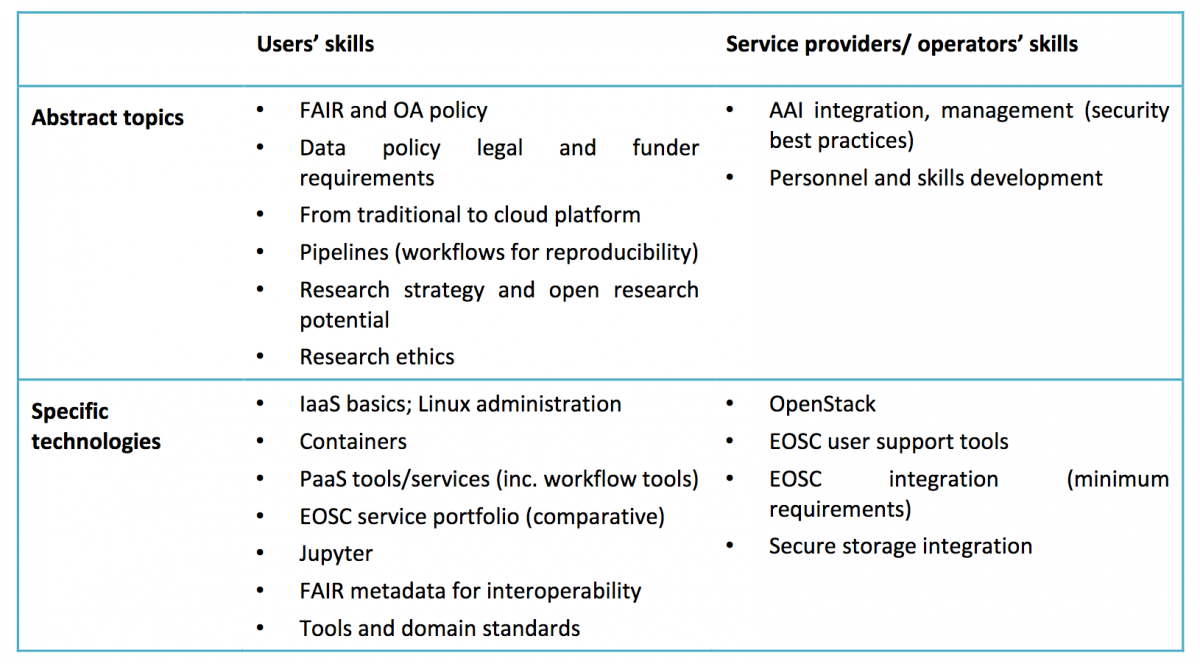EOSCpilot’s Contributions to EOSC Skills
Skills development has a very relevant role among the EOSC ecosphere, with a main focus on implementing a Skills and Capability Framework to address a varity of actors among researchers, service providers and related organisations to guide them throught the huge world of skills demand for researchers and professionals, and to relate them to the organizational capabilities needed to provide EOSC services and ensure they are effective tools in skilled hands.
The EOSC Skills and Capability Framework is an strong answer to a vast need that has been requested by a number of European Commission (EC) statements released since the EOSCpilot project started at the beginning of 2017.
The goal is to realize three main aims that have been proposed:
- to make better use of digital technology for teaching and learning
- to develop digital competences and skills needed for living and working inan age of digital transformation
- to improve education through better data analysis and foresight
What the Framework envisages is a gradual enhancement of skills across three dimensions,
competence, responsibility and organisation, that involve six groups:

The structure can also be inlustrated in this other way:

The six core groups are all part of a bigger system, Govern and assess, Scope and resource, Advise and enable as they share the same content at the top level of the Framework :

In total we have nine skill groups that are part of the Framework, where each one has its own scope:
Plan and design
Planning and design of data, research software and other outputs, including the associated documentation. This will include all relevant steps including identifying the requirements of research output users, the organisation and research funders, then establishing effective approaches to meet their requirements, and then testing and validating the initial outputs.
Capture and process
Capturing and processing of data or related materials to enable research evidence to be prepared for analysis; provisioning of secure managed access to networked storage, scalable to meet demands, plus resources, tools, standards and workflows for collaboration between research team members, and relevant third parties.
Integrate and analyse
Developing and applying appropriate methods to enable lines of enquiry to be formulated and pursued towards the research objectives, by assembling and integrating selected data, software, systems, or other resources, and enabling relevant knowledge and techniques to be applied in their analysis and transformation into research outputs.
Appraise and preserve
Developing and applying appropriate methods to appraise research outputs for their compliance with ethical, FAIR and research integrity principles, their value to the organisation and to research reproducibility, and their potential to serve new purposes or communities; planning and taking action to mitigate risks to long-term access for further appraisal.
Publish and release
Describing research products and their inter-relationships, providing access to meet the needs of their providers, users, and other stakeholders, in order to maintain or enhance their value and comply with ethical, FAIR and research integrity principles and policies.
Expose and discover
Ensure that processes and mechanisms for providing access to research products and their inter-relationships follow technology developments, community standards, and good practices for compliance with ethical, FAIR and research integrity principles.
Govern and assess
Developing and maintaining the organisation’s strategies, policies, and processes on FAIR/open research outputs, and associated documents and processes that enable these to be implemented, and relevant laws or regulations to be complied with. Continually reviewing these strategies, policies and processes through stakeholder consultation, communication, and impact monitoring.
Scope and resource
Identifying the scope of research data services and stewardship activities and securing the resources to sustain these. Continually reviewing the business case considering the service value propositions, processes, and relevant costs and benefits, taking into account governance processes and timelines, and the need for cost recovery mechanisms to comply with funder requirements.
Advise and enable
Management of services that enable data stewardship and open research, and the online or face-to-face training and support that service customers need to make effective use of them. This will include interacting with relevant professional service units, managing stakeholder relationships, and making continuous improvements to these.
EOSC If you want to know more about the EOSC Skills and Capability Framework and how this will help the development of core competencess, visit the full report here
EOSC Strategy for Skills and Capabilities
Developing and sustaining the skills of researchers, research support staff and EOSC service providers is essential for the success of the EOSC vision. EOSCpilot developed FAIR4S, a competence and capability framework drawing from existing frameworks for data science, data librarianship and data literacy.
FAIR4S focuses on the skills to make data FAIR and keep it FAIR, offering guidance for EOSC service providers, research performing organisations and individuals on the competences they need, and the learning resources freely available. Coupled with this, recommendations for organisations and the EOSC governance on ensuring adequate support infrastructure for training were developed, including a registry of learning resources.
The final goal is to link and develop EOSC capabilities to skills and competences.
A list of GAPS for Skills and capabilities have been identified:

For a more complete picture of the EOSC strategy for Skills and Capabilities visit the full report here


